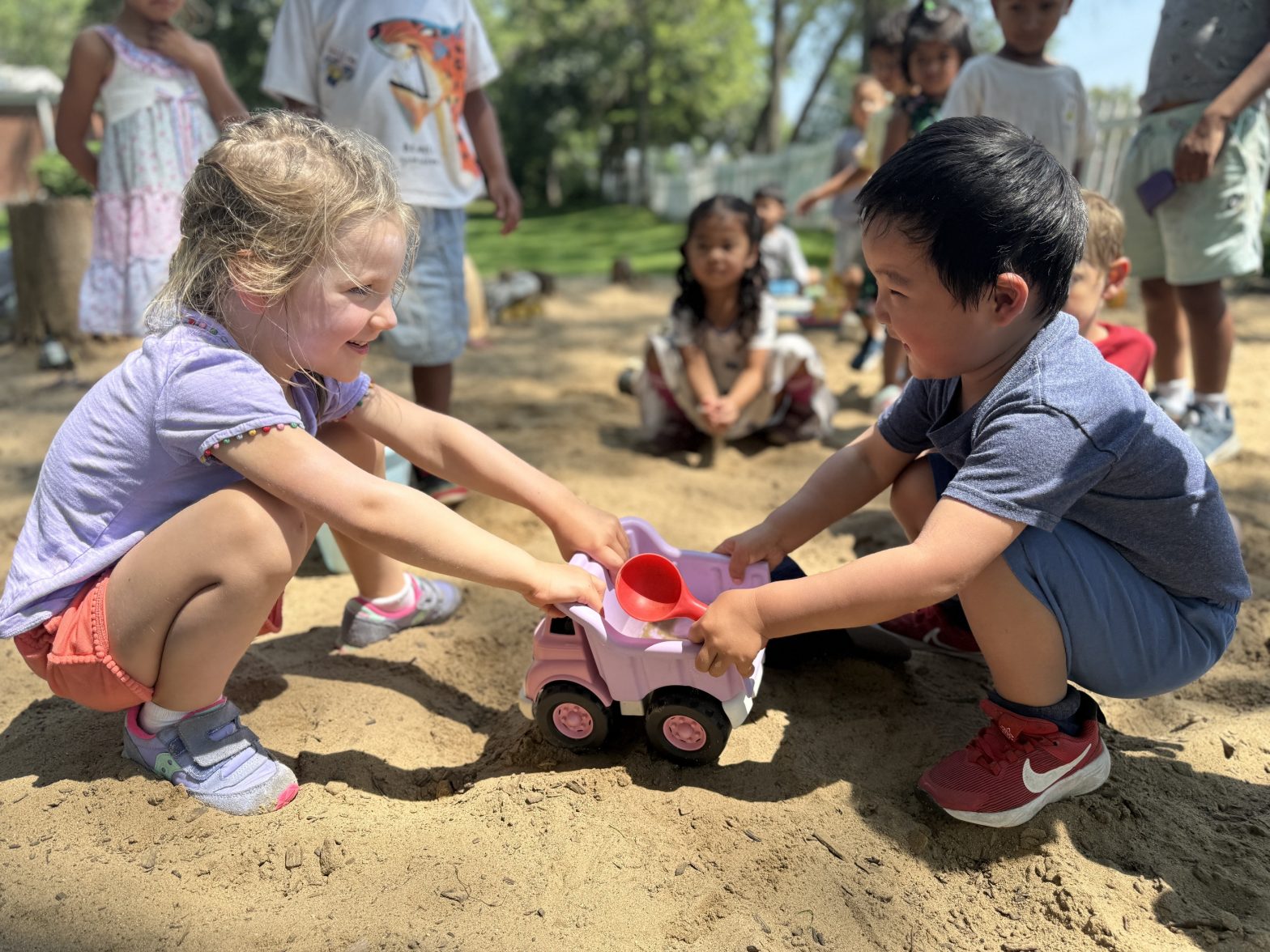It’s not uncommon for parents to worry when their young child comes home saying, “He pushed me,” or
“She wouldn’t let me play.” Understandably, hearing that your child felt hurt or left out can tug at your heart. But more and more often, we see these moments described as bullying—a word that’s often misused in
early childhood.
True bullying involves repeated, intentional harm and a clear imbalance of power—something that is very rare
at this developmental stage. What’s far more common are social growing pains: young children still learning
how to express emotions, navigate friendships, and solve problems peacefully. In a Montessori environment, we expect these moments—and we meet them with guidance. Through grace and courtesy lessons, gentle mediation, and daily practice in empathy and reflection, we help children learn to listen, speak up with kindness, and repair relationships when needed.
If your child shares a story of a disagreement, know that this is part of the learning process. What they need most is support—from both home and school—as they build the skills to navigate these moments with
growing confidence. Try not to let your own emotions lead the story. Young children are wonderfully in tune with our responses, and they take their cues from how we react.
When we approach conflict with calm curiosity rather than alarm, we help our children see it not as something to fear—but as something they can learn from, and move through, with grace.



Leave a Comment